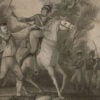
No greater dilemma faced the Colombian political system in recent months than the issue of presidential re-election. Should a constitutional referendum be held to allow a popular, extremely effective leader to run, and likely win, a third term as president? For many Colombians, President Alvaro Uribe had become the indispensable leader.
Yet, across the political spectrum, many friends of Colombia worried about the impact of such concentrated power on the congress and judiciary. A third term for Uribe would damage democratic belief in the alterability of executive power and resemble what authoritarian populist Hugo Chavez is doing to destroy democracy in Venezuela.
On February 27, the Colombian Supreme Court rejected the holding of a referendum.
History will record that President Uribe [2002-2010] was a transformative president and a strategic visionary who save his nation from collapse, restored national confidence and pride, and blazed a path linking security with democracy. In the fight against drugs and terrorism, the U.S. found in Uribe a responsible and effective partner.
While the Bush Administration recognized Uribe’s achievements, the Obama Administration and Congress have maintained a distant posture. While advancing security cooperation with Colombia, the Democrats have failed to deliver on the Free Trade Agreement signed in 2006. More than three years of inaction has cost the U.S. jobs and market share.
The Obama Administration warmly applauded Uribe in a recent letter . It can take the next step by recognizing the maturity of Colombia’s democracy and pushing for congressional passage of the trade agreement. This action would be a fitting tribute to Colombia’s democratic progress, foremost, and a final, well-earned tribute to President Uribe.




























